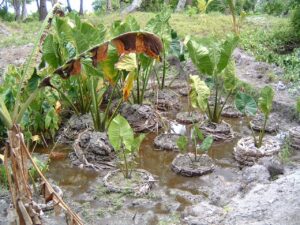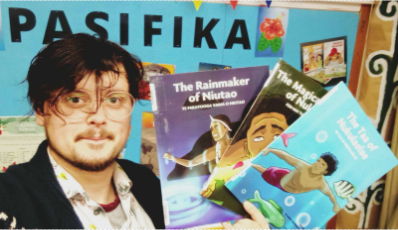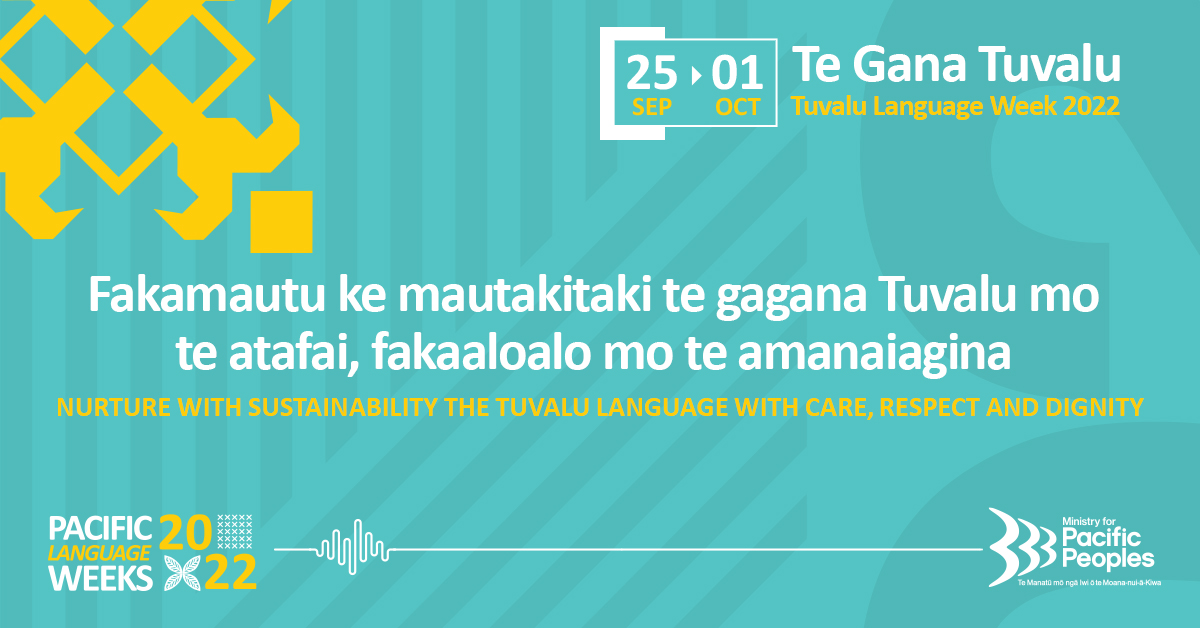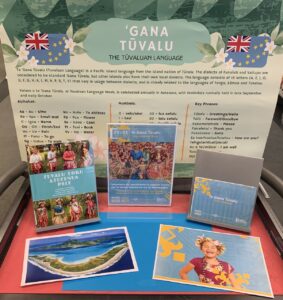Tālofa…
…and welcome to Vaiaso o te Gana Tuvalu | Tuvalu Language Week 2023! Fakafetai — thank you for joining us in celebrating this beautiful Pasifika nation.
Tuvalu Language Week runs from Sunday 1st to Saturday 7th of October 2023. The theme for Tuvalu Language Week this year is:
Fakatumau kae fakaakoi tau ‘gana ke mautu a iloga o ‘ta tuā. | Preserve and embrace your language to safeguard our heritage identities.
It’s important that we support and protect Tuvaluan people and culture, now more than ever, as their homeland faces a very serious threat.
Due to global warming, the 9 islands that make up Tuvalu are being swallowed by the sea, and it’s predicted that they’ll be impossible to live on within 50-100 years. Without a homeland to anchor their way of life, Tuvaluan traditions and culture are at terrible risk of extinction.
But we can all help to keep Tuvalu alive if we take some time to learn and share Tuvaluan language and culture; spread knowledge and raise awareness throughout Aotearoa and beyond.
Food | Kai

Image: Pulaka Pit by Luigi Guarino on Flickr, licensed under CC BY 2.0 Deed.
Like all Pasifika nations, Tuvaluan kai draws heavily on their island resources, like coconuts and seafood. The majority of the working population are farmers, and can happily feed themselves with food produced in their own backyards. The most common crop is pulaka — swamp taro — which grows underground, making it less likely to be damaged by strong weather or rising tides.
Fekei is a popular dessert in Tuvalu, made by wrapping a mixture of coconut cream and grated pulaka in the leaves of the pulaka plant.
Helpful Words | Pati Aoga
Hello! — Tālofa!
My name is ___ — Toku igoa ko ___
Good luck! Cheers! Be well! — Manuia!
Have a good day! — Manuia te aso!
Have a good night! — Manuia te pō!
Have a good journey! — Manuia te malaga!
This lady will pay for everything! — A mea katoa e ‘togi nē te fafine tēnei!
My hovercraft is full of eels — Taku hovercraft kō fonu i pusi
Learn even more phrases using the Tuvalu Language Cards from the Ministry for Pacific Peoples!
Books | Tusi
Au e foliki? = Am I small / Winterberg, Phillip
“‘Am I small?’ – Tamia is not sure and keeps asking various animals that she meets on her journey. Eventually she finds the surprising answer…” This book has been translated into Tuvaluan, and is a bilingual story, meaning it has English and Tuvaluan side-by-side. (Adapted from Catalogue)
Bilingual Tuvaluan Stories / Sioni, Alamai Manuella
Alamai Manuella Sioni and illustrator Chad Robertson have put out a fantastic series of 8 bilingual Tuvaluan picture books — a mixture of legends and stories about life in Tuvalu.
 The ili of Funafuti = Te ili o Funafuti / Kaveinga, Meli
The ili of Funafuti = Te ili o Funafuti / Kaveinga, Meli
“Describes the process used by the women of Funafuti (Tuvalu) to make a fan from coconut palms.” (Catalogue)
 The gifts of Pai and Vau = Meaalofa a Pai mo Vau / Riley, David
The gifts of Pai and Vau = Meaalofa a Pai mo Vau / Riley, David
“Pai and Vau are Nanumea superheroes who created beautiful things in our world. One day a stranger named Tefolaha came to their island. “This is now my island,” he declared and challenged them to a contest. What kind of contest did he dream up? What would Pai and Vau do if they lost?” (Catalogue)




